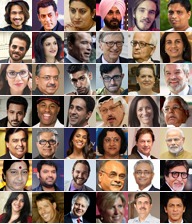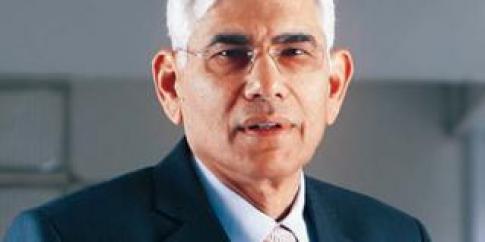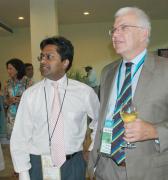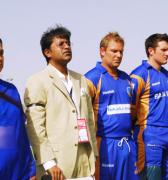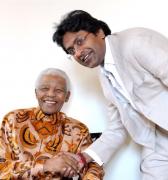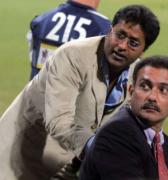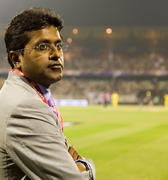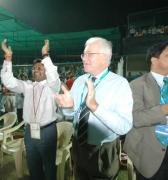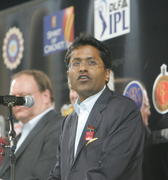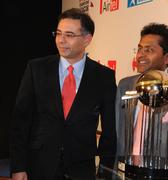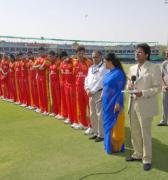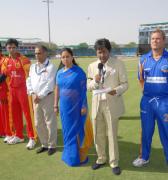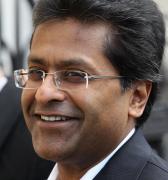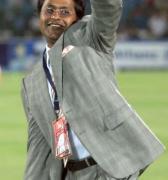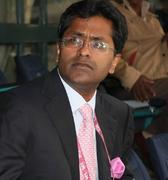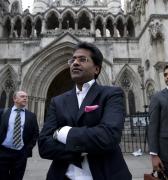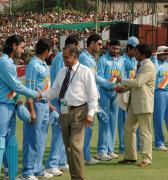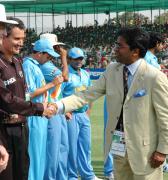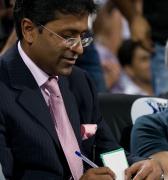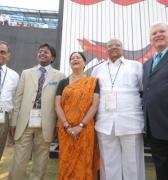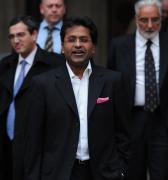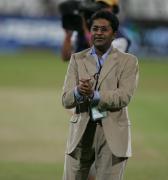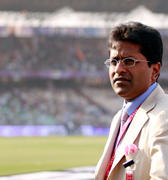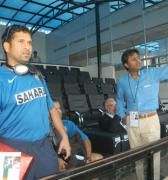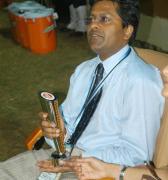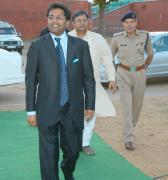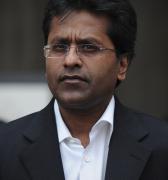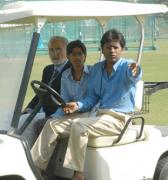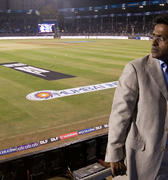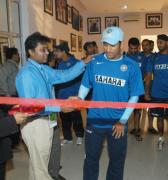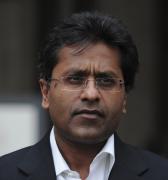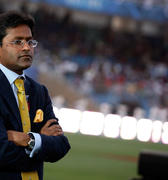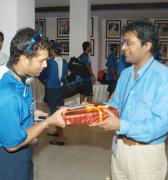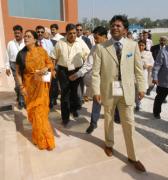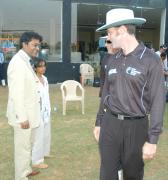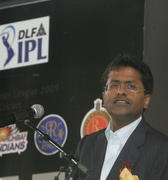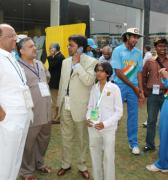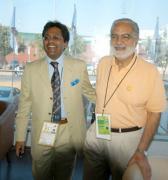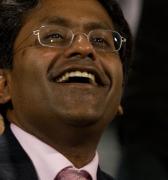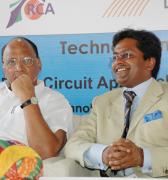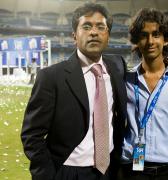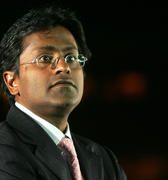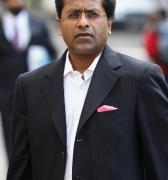BCCI get new constitution – On paper at least
Committee of Administrators upload new system of laws on the cricket board’s website, to appraise Supreme Court this week
The Committee of Administrators (COA) has ‘finalised’ an overhaul of the BCCI constitution, removing 41-time Ranji Trophy champions Mumbai as a Full Member, giving all north-eastern states Full Membership status. This also means that the nine-year cumulative clause for an office-bearer won’t be calculated separately in the cricket board and state association — if someone has completed nine years either in the BCCI or a state association he/she is finished as a cricket administrator.
Clauses which confirm the 70-year upper age limit and the three-year cooling off period as proposed by the Lodha Committee and accepted by the Supreme Court, have also been uploaded on the BCCI’s official website.
Maharashtra Cricket Association and Gujarat Cricket Association have been picked from their respective states as per one-state-one-vote rule, founder members like Cricket Club of India (CCI) and National Cricket Club (NCC) were dumped, along with all government institutes — Railways, Services and Universities. The working committee, too, has been replaced with an apex council and changes like electoral officer, ethics officer, agents’ register and cricket players’ association were incorporated.
The altered constitution, uploaded on the BCCI website, says: “Each State shall be represented by a state cricket association duly recognized by the BCCI and such associations shall be Full Members. No State shall have more than one Full Member at any given point of time.”
As per the clause, Mumbai and Vidarbha have been removed as Full Members from Maharashtra, while axe fell on Saurashtra and Baroda from Gujarat as a list of 30-Full Member associations have been prepared. Apart from the north-eastern states, the new list has also included Bihar, Telangana and Uttarakhand.
“In States with multiple Existing Members, the full membership shall rotate annually among such Existing Members such that only one of them will exercise the rights and privileges of a Full Member at any given point of time. The rotation shall be as per the policy framed by the BCCI,” the new constitution says.
So it relegates Mumbai to Associate Membership status, along with other existing members of the BCCI.
The new constitution has put an end to the nine years or nine-plus-nine (in the BCCI and state) debate as well. The ‘Memorandum of Association & Rules & Regulations of BCCI as finalized by the Committee of Administrators’ mentions: “A person shall be disqualified from being an Office Bearer if he or she has been an Office Bearer of the BCCI for a period of 9 years or an office bearer of any Member for a period of 9 years.” It adds: “No person shall be an Office Bearer for more than 3 terms in all” and also, “The Term of office of an Office Bearer shall be 3 years.”
On January 30, the Supreme Court appointed a four-member panel of administrators to manage the affairs of the cricket board and report on whether it has complied with the Lodha Committee’s recommendations. The panel comprising Vinod Rai, Ramchandra Guha, Vikram Limaye and Diana Edulji, however, has uploaded the proposed changed constitution without calling a Special General Meeting (SGM) and obtaining a three-fourths majority in accordance with the Societies Act. The BCCI is a Society governed by the Societies Act.
COA explains
Asked about this, a COA member told The Sunday Express: “The Lodha Committee has prepared a constitution that the court has approved. We have only uploaded that constitution. The next step will be to figure out how it gets implemented.”
Regarding Mumbai’s removal as a Full Member, he explained: “See, you are talking about one-state-one-vote. We are not at liberty to change the court order. This is the court order, which has approved the Lodha Committee recommendations, one of which is one-state-one-vote. The Committee has the mandate of implementing the court order. It has been put in place for that. But this is the BCCI constitution, not the state constitution. The states will also have to make changes to their own constitutions.”
According to a source close to the COA, the Supreme Court would be apprised of the change during the next hearing on March 20 and as because barely a single BCCI member is presently eligible in accordance with the Lodha Committee guidelines, no SGM has been called.
On Monday, the Supreme Court is likely to hear interim applications filed by several state associations, requesting for the permission to hold a general body meeting.
Some administrators also want clarity on the authority and scope of functioning of the CoA.
The Committee of Administrators (COA) has ‘finalised’ an overhaul of the BCCI constitution, removing 41-time Ranji Trophy champions Mumbai as a Full Member, giving all north-eastern states Full Membership status. This also means that the nine-year cumulative clause for an office-bearer won’t be calculated separately in the cricket board and state association — if someone has completed nine years either in the BCCI or a state association he/she is finished as a cricket administrator.
Clauses which confirm the 70-year upper age limit and the three-year cooling off period as proposed by the Lodha Committee and accepted by the Supreme Court, have also been uploaded on the BCCI’s official website.
Maharashtra Cricket Association and Gujarat Cricket Association have been picked from their respective states as per one-state-one-vote rule, founder members like Cricket Club of India (CCI) and National Cricket Club (NCC) were dumped, along with all government institutes — Railways, Services and Universities. The working committee, too, has been replaced with an apex council and changes like electoral officer, ethics officer, agents’ register and cricket players’ association were incorporated.
The altered constitution, uploaded on the BCCI website, says: “Each State shall be represented by a state cricket association duly recognized by the BCCI and such associations shall be Full Members. No State shall have more than one Full Member at any given point of time.”
As per the clause, Mumbai and Vidarbha have been removed as Full Members from Maharashtra, while axe fell on Saurashtra and Baroda from Gujarat as a list of 30-Full Member associations have been prepared. Apart from the north-eastern states, the new list has also included Bihar, Telangana and Uttarakhand.
“In States with multiple Existing Members, the full membership shall rotate annually among such Existing Members such that only one of them will exercise the rights and privileges of a Full Member at any given point of time. The rotation shall be as per the policy framed by the BCCI,” the new constitution says.
So it relegates Mumbai to Associate Membership status, along with other existing members of the BCCI.
The new constitution has put an end to the nine years or nine-plus-nine (in the BCCI and state) debate as well. The ‘Memorandum of Association & Rules & Regulations of BCCI as finalized by the Committee of Administrators’ mentions: “A person shall be disqualified from being an Office Bearer if he or she has been an Office Bearer of the BCCI for a period of 9 years or an office bearer of any Member for a period of 9 years.” It adds: “No person shall be an Office Bearer for more than 3 terms in all” and also, “The Term of office of an Office Bearer shall be 3 years.”
On January 30, the Supreme Court appointed a four-member panel of administrators to manage the affairs of the cricket board and report on whether it has complied with the Lodha Committee’s recommendations. The panel comprising Vinod Rai, Ramchandra Guha, Vikram Limaye and Diana Edulji, however, has uploaded the proposed changed constitution without calling a Special General Meeting (SGM) and obtaining a three-fourths majority in accordance with the Societies Act. The BCCI is a Society governed by the Societies Act.COA explains
Asked about this, a COA member told The Sunday Express: “The Lodha Committee has prepared a constitution that the court has approved. We have only uploaded that constitution. The next step will be to figure out how it gets implemented.”
Regarding Mumbai’s removal as a Full Member, he explained: “See, you are talking about one-state-one-vote. We are not at liberty to change the court order. This is the court order, which has approved the Lodha Committee recommendations, one of which is one-state-one-vote. The Committee has the mandate of implementing the court order. It has been put in place for that. But this is the BCCI constitution, not the state constitution. The states will also have to make changes to their own constitutions.”
According to a source close to the COA, the Supreme Court would be apprised of the change during the next hearing on March 20 and as because barely a single BCCI member is presently eligible in accordance with the Lodha Committee guidelines, no SGM has been called.
On Monday, the Supreme Court is likely to hear interim applications filed by several state associations, requesting for the permission to hold a general body meeting.
Some administrators also want clarity on the authority and scope of functioning of the CoA.
Courtesy: The Indian Express




